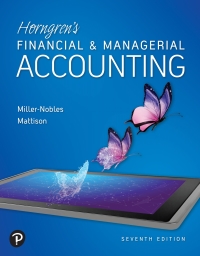zo ar we HOW MANY ENTITIES DO YOU NEED TO LOOK THROUGH? SCENARIO 10 The Situation vestment funds for various local labor unions--welfare funds, health funds, and och fund (the exact percentage varies from fund to fund) is invested in Mortgage Your firm, Danvers Accounting LLP, audits three of these funds. You are the further responsible for these audits, and this is your second year doing so. The debt they show limited activity and carry few expenses. You need to confirm, through the report of an actuary, that what the funds are obligated to pay out is properly represented in the financial statements. You also need to confirm the validity and value of the assets that the fund invests in. You need to verify that Starburgh is properly carrying out its fiduciary responsibility, by investing in a manner consistent with the charters set down by the union directors of the various funds. And you need to obtain a SAS 70 review of the holder of the securities (a group employed by Starburgh), to confirm that the securities actually held represent the securities owned. These audits, then, are overall fairly low-risk point engagements, since you are relying on reports of the relevant experts at nearly every In the course of the audit, the audit manager approaches you and asks whether your firm should seek an independent valuation of the funds' investments in Mortgage Equity. You are caught off guard by the question, because Danvers has not once in the last twenty years sought such a valuation. Generally, mortgages are not a particularly risky investment, since they have real estate as collateral. Moreover, the funds' investments in Mortgage Equity have been scrutinized and approved by the directors of the three union funds. You are unaware of GAAS requiring an independent valuation in such circumstances; in fact, you are fairly confident that it does not. And besides, each year Starburgh provides a valuation of those investments, produced by its own expert. So for all these reasons an independent valuation looks completely unnecessary to you. You recognize, of course, that Starburgh would have an incentive to hide a problem in those investments, since they might be fired as fund managers if those investments implied a substantial overall loss. Also, the union directors have an incentive to ignore problems that might arise. The reason is that some of the union 170 the int th funds are health and welfare funds, where the return on investment has a dire effect on dues to be charged to union members in future years. The higher the tale of return of the funds, the more the directors can reduce dues, thus keeping the were to lose value, the union fund directors would be held responsible by union ( the question members and would probably lose their jobs. Compounding all of this is that, soon after your manager asks you about an independent valuation, you remember that a few months ago the newspapers were reporting charges made by minority investors in Starburgh thar charges; they seemed motivated because of personal enmities and jealousy. More importantly, perhaps, the union directors dismissed the claims as unfounded Ultimately it would be the union directors who would have to approve the added expense of obtaining an independent valuation. And if you were to insist on this expense and especially if you were to express any doubts about the integrity of the president of Starburgh-you might endanger the retention of these audit engagements seek an independent Question What should you do, then? All things considered, should you valuation or not? What follows are four possible actions you can take. Which of these are excluded, and which is best? Looking for an Answer 1. There is no need to do anything in particular. It is best, and safest, to do what your firm has always done in the past. You think: this option has the weight of experience and the credibility of past practice on its side. You see no decisive or determining reason to do anything differently. 3. 2. You should organize meetings with the investment directors of the three union funds. At these meetings, you should express your skepticism and explain that your firm will not give an audit opinion until it can reach a greater comfort level about the valuation of the investments in Mortgage Equity. You should go ahead and require the independent valuation, approaching Starburgh and asking them to have it done, using a recognized and independent expert. This would be done without consultation with the fund directors. You should initiate a conversation with the three or four other audit firms which audit the other seventeen funds managed by Starburgh, to find out what 4. doing and why. You hope in this way to confirm your these firms are the valuation, but perhaps your interpretation is incorrect or not up to date. See page 184 below for a suggested resolution and discussion.)









